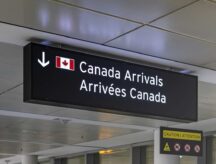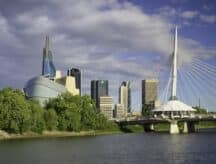Canada and U.S. provide more information on status of work permit holders
In advance of travel restrictions to be implemented at their border effective tomorrow, on Saturday, March 21, both the Canadian and U.S. government have released more details on who will be included and excluded from the restrictions.
Included in the restrictions are those seeking to travel between the border for non-essential purposes. The Canadian government has defined “non-essential” travel as that which is done for tourism or recreational purposes. Such travellers are forbidden from travelling across the border for the 30-day period following March 21, after which both Canada and the U.S. will review the border restrictions.
Contact us if you require work permit assistance.
The Canadian government’s statement suggests that American and Canadian work permit holders will be deemed as essential travellers, however this should not be interpreted as an exhaustive waiver for all work permit holders until official confirmation is provided by either the American or Canadian government.
The U.S. Department of Homeland Security also released a notice today on the provisions of the travel restrictions.
It states that travel through land ports of entry and ferry terminals along the U.S.-Canada border shall be limited to “essential travel”, which includes but is not limited to:
- U.S. citizens and lawful permanent residents returning to the United States;
- Individuals travelling for medical purposes (e.g., to receive medical treatment in the United States);
- Individuals travelling to attend educational institutions;
- Individuals travelling to work in the United States (e.g., individuals working in the farming or agriculture industry who must travel between the United States and Canada in furtherance of such work);
- Individuals travelling for emergency response and public health purposes (e.g., government officials or emergency responders entering the United States to support Federal, state, local, tribal, or territorial government efforts to respond to COVID-19 or other emergencies);
- Individuals engaged in lawful cross-border trade (e.g., truck drivers supporting the movement of cargo between the United States and Canada);
- Individuals engaged in official government travel or diplomatic travel;
- Members of the U.S. Armed Forces, and the spouses and children of members of the U.S. Armed Forces, returning to the United States; and
- Individuals engaged in military-related travel or operations.
The bullet in bold indicates Canadians will be able to travel to the U.S. for work. CIC News will confirm whether this is, in fact, the case as more information becomes available.
Contact us if you require work permit assistance.
Click here to learn more about Canada’s response to the coronavirus pandemic.
© 2020 CICNews All Rights Reserved
- Do you need Canadian immigration assistance? Contact the Contact Cohen Immigration Law firm by completing our form
- Send us your feedback or your non-legal assistance questions by emailing us at media@canadavisa.com







